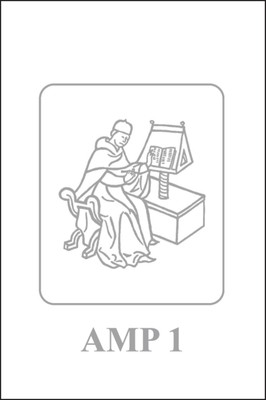
- Išsiųsime per 10–14 d.d.
- Leidėjas: Leuven University Press
- ISBN-10: 946270046X
- ISBN-13: 9789462700468
- Formatas: 16.3 x 24.1 x 2.3 cm, kieti viršeliai
- Kalba: Anglų
- Extra -15 % nuolaida šiai knygai su kodu: ENG15
Averroes' Natural Philosophy and Its Reception in the Latin West + nemokamas atvežimas! | knygos.lt
Atsiliepimai
Aprašymas
In English and French.
Ibn Rushd (1126-1198), or Averroes, is widely known as the unrivalled commentator on virtually all works by Aristotle. His commentaries and treatises were used as manuals for understanding Aristotelian philosophy until the Enlightenment. Both Averroes and the movement commonly known as "Latin Averroism" have attracted considerable attention from historians of philosophy and science. Most studies focus on Averroes' psychology, particularly on his doctrine of the "unity of the intellect," Averroes' natural philosophy as a whole and its influence still remain largely unexplored. This volume aims to fill the gap by considering various aspects of Averroes' natural philosophical thought and evaluating its impact on the history of philosophy and science between the late middle ages and the early modern period.
EXTRA 15 % nuolaida su kodu: ENG15
Akcija baigiasi už 1d.01:27:51
Nuolaidos kodas galioja perkant nuo 10 €. Nuolaidos nesumuojamos.

- Leidėjas: Leuven University Press
- ISBN-10: 946270046X
- ISBN-13: 9789462700468
- Formatas: 16.3 x 24.1 x 2.3 cm, kieti viršeliai
- Kalba: Anglų
In English and French.
Ibn Rushd (1126-1198), or Averroes, is widely known as the unrivalled commentator on virtually all works by Aristotle. His commentaries and treatises were used as manuals for understanding Aristotelian philosophy until the Enlightenment. Both Averroes and the movement commonly known as "Latin Averroism" have attracted considerable attention from historians of philosophy and science. Most studies focus on Averroes' psychology, particularly on his doctrine of the "unity of the intellect," Averroes' natural philosophy as a whole and its influence still remain largely unexplored. This volume aims to fill the gap by considering various aspects of Averroes' natural philosophical thought and evaluating its impact on the history of philosophy and science between the late middle ages and the early modern period.




Atsiliepimai